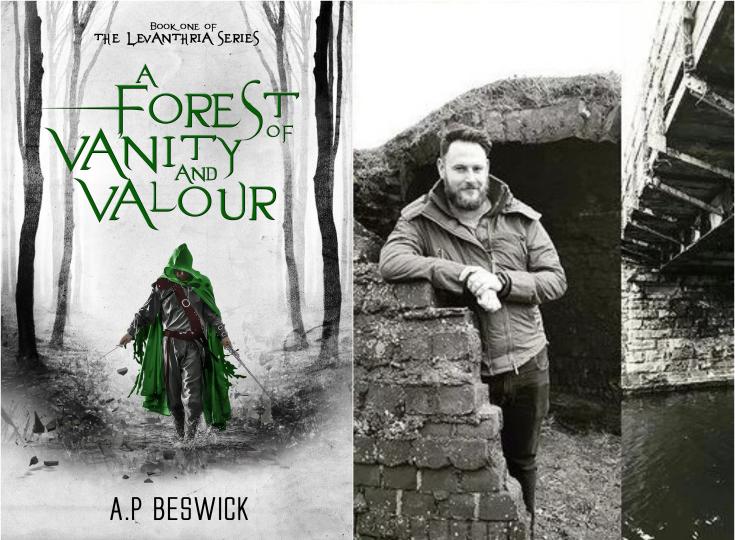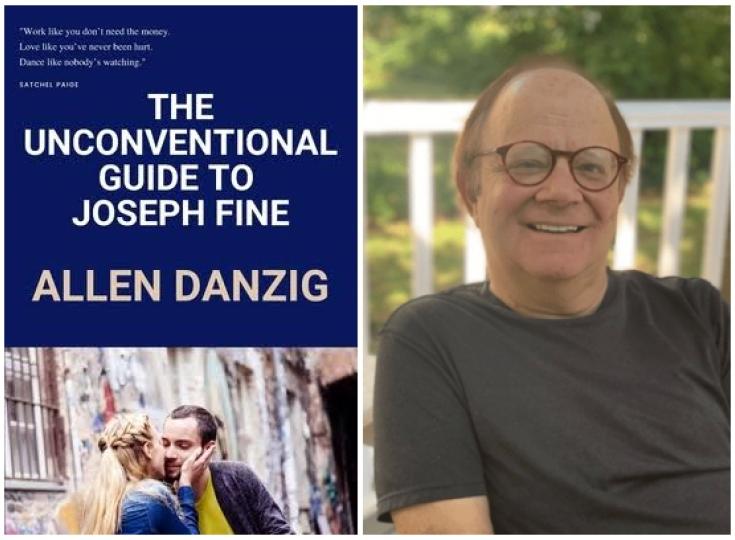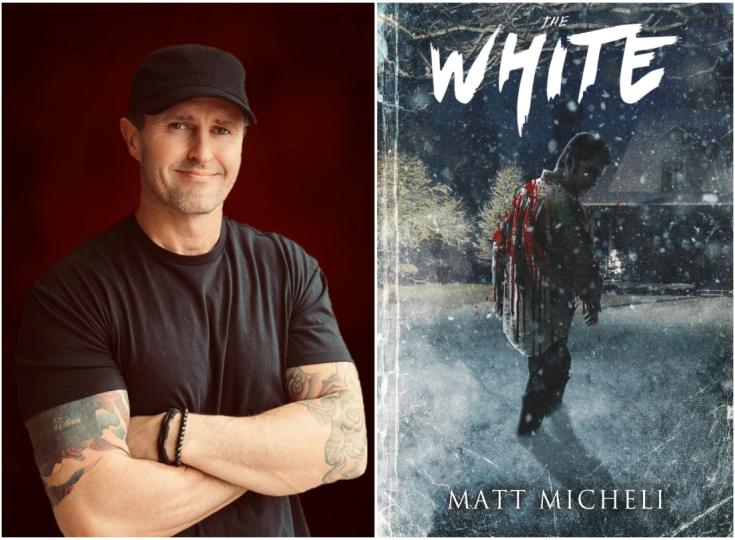David J Lavallee - A Coming of Age, Dystopian, Post-Apocalyptic Story
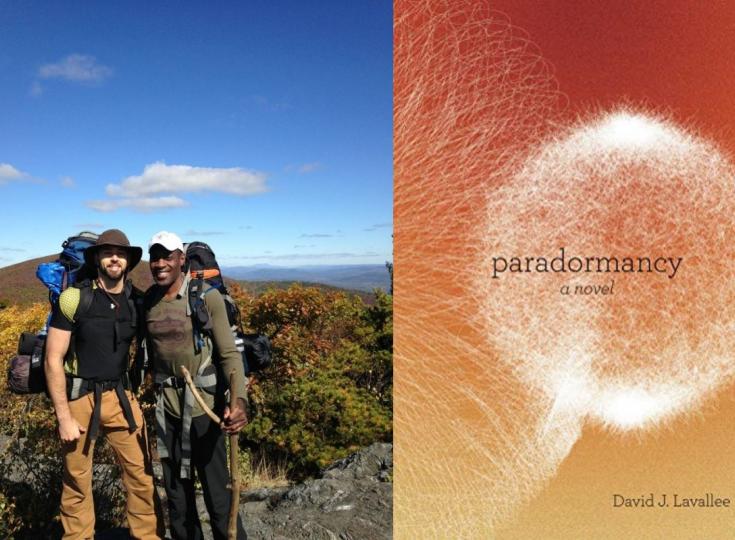
David J. Lavallee was born in Putnam, Connecticut and grew up in nearby Plainfield. A true Swamp Yankee, he thought nothing of getting his first few bikes from the town dump; he just wished the banana seats were a little more forgiving. A former classroom teacher, he now currently enjoys working with a network of public high schools in New York City as a specialist and instructional coach. As our Author of the Day, Lavallee tells us all about his book, Paradormancy.
Please give us a short introduction to what Paradormancy is about.
Paradormancy is a coming of age, dystopian, post-apocalyptic story in which Core, our main character, is chosen to help forge a better path for a remote, desert outpost territory. He, like some of the other visionaries, have been carefully selected and trained to develop the Turquoise Territory so that it can prosper and provide for itself, rather than rely heavily upon the shipments of the New Republic. Confusion and questions mount as Core faces his own inner struggles. As visionaries, Core and his partner, Dani are supposed to only be paired with the same gender, free from the burden of raising children. But the eyes and heart aren’t always attuned to societal norms. As tension builds, Core needs to decide how best to save the people he loves most. You might say that Paradormancy could be a distant cousin of Hunger Games and Mad Max.
What inspired you to write about a post-apocalyptic society that is a bit of an inversion of what we have today?
Great question! I love the Desert Southwest; I spent a semester of graduate school living and learning in Mexico, Arizona, Utah, and Colorado. It can seem otherworldly (maybe not to those that live there), so the setting called to me. And the story was sort of an offshoot of conversations I had with my husband about what it would be like to have a structured way to support what he and I have dubbed “protogays”. We talked about what it would be like to have a system where any young gay, lesbian, or transgendered youth could have a mentor of sorts, because even in the best scenario within a loving family, one can still feel as if they don’t belong because the adults in that child’s life, although well intentioned, may not be equipped to guide or teach that child how to come into their own. So I was thinking what if gays, lesbians, and transgendered people were the desired offspring? What if straight parents had to prove their worth in order to adopt them? And the story sort of grew out of that.
Your book doesn't explicitly condemn your invented society or its questionable practices. Why did you decide to take a subtle approach?
I like letting the reader fill in the gaps and decide for themselves. Plus, I like subtlety! There’s a lot of noise in our world so I appreciate the whisper or suggestion. I think that within any society there can be well intentioned beliefs or practices that inevitably have consequences or implications for others or for the greater environment. And many aren’t fully able to question a practice when it may be an accepted societal norm. I think I am also trying to show what I believe to be universal human weakness. We can sometimes be blinded by our own predilections.
This is gay fiction, but not only meant for a gay audience. Please tell us more.
I try to focus on just writing a good story…and hopefully I succeed! And I think the human experience should transcend boundaries. But back in 2009, when I started to get more serious about writing, I was struck by how little literature there was available for teens questioning their sexuality or gender. Or perhaps I just couldn’t find what was out there. I did stumble upon and loved Out of the Pocket by Bill Konigsberg and A Secret Edge by Robin Reardon. And like both those authors, I thought that it was important for me to tell stories that could be accessible to anyone, yet filled a void that I perceived to exist. I love that there are so many authors writing within this genre now! We never know the power that literature can have on shaping perspective and mindset for different types of people. Also, I didn’t officially begin the process of coming out as gay until I was 25, so in some ways I feel like I don’t belong in either world (gay or straight). There are norms within both groups and I find myself thinking what the heck are they talking about and why don’t I connect with them? I guess I have always felt like an outsider, perhaps I wear it as a badge of honor. Albeit one that is masculine and rugged, but really brings out the green in my hazel eyes.
Your book explores topics like the questionable value of progress, the cycle of reactionary violence and oppression and the fluid nature of sexuality. Why did you find these themes important to write about?
If I were to label myself, I might use what could be considered a dirty word in some circles-an environmentalist. Within nature, one can frequently find a system of checks and balances that control population, limit dominance, and yet create a system of interdependence. On a global scale, I am fascinated with how we push limits and borrow resources, always looking towards progress while trying to keep the lid on a rattling voice that is telling us to try and live as a part of our world’s systems not apart from them. Just as with remote islands and the unique speciation that occurs in these locations, I think that remote or isolated communities can also develop some unique or interesting ways of living, sometimes valuing or devaluing variation within their own group. As for the fluid nature of sexuality, I feel as though I have evolved in trying not to box people in or label them. Historically speaking, we have had cultures and civilizations that have celebrated sexual fluidity, but times change and other forces have risen to dictate sexual behavior. Attraction and love may not follow the desired boundaries that we have tried to impress upon them, so why not have stories where characters are unsure of who and what they like? That seems more normal to me.
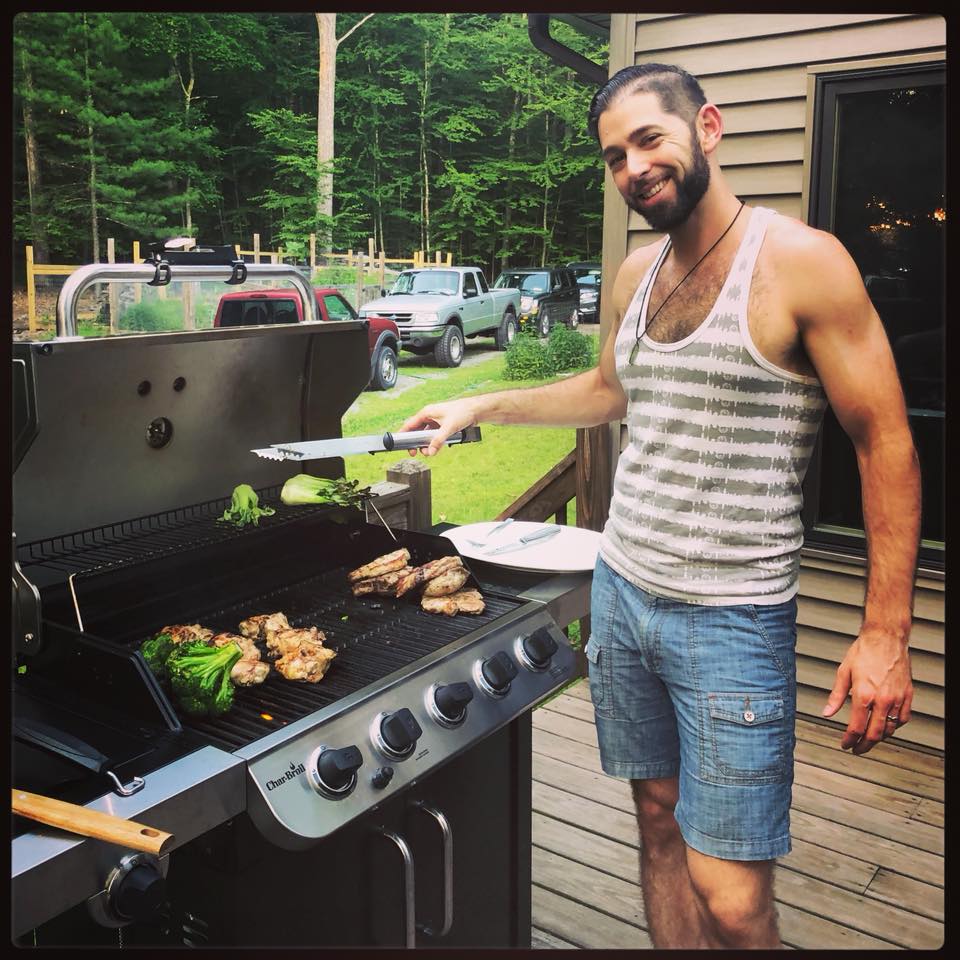
Readers say your characters felt relatable and real. How did you pull this off?
I like characters with flaws. And I am always rooting for the underdog or the disenfranchised. I also like for my characters to come into their own once I have sort of fleshed them out. When it comes to dialogue, I often have to speak out loud to make sure that I have captured what I believe to be the voice of the character. Plus, I consider myself to be quite an observer. I enjoy watching people. There are so many moments that offer themselves to us for study if we just pay attention! Oh, and if there is an intended emotional scene in my writing, I will definitely be crying as I write it!
Besides writing, what other secret skills do you have?
Ha! I don’t know if I would call them secret skills, but I enjoy making my own maple syrup at our house in upstate New York. I just began the process again for this year and the timing is perfect because my ration of last year’s supply is at a critically low level! I can fell trees (of course not maple!) for firewood. I am obsessed with all cars and vehicles from the 70s and 80s, so I can identify many of them from several hundred feet away and give you the back story on their production and quirks. Did you know that Ronald Reagan drove a Subaru Brat!?! Oh, and I can do a full front split. That covers a lot of bases, right? All very useful skills.
Is there something that compels you to write? And do you find that writing helps you achieve a clarity about yourself or ideas you've been struggling with?
Yes! I write for the underrepresented. Even though I facilitate workshops, I don’t feel that my oral communication skills are as strong as I would like them to be. It’s easier for me to convey something through the written word because I can play around with language more and layer meaning. I appreciate how the subconscious reveals itself within writing. And I love how a story can be seen differently depending upon the mindset of the reader. Writing can allow me to process or make sense of current events or societal norms and how they influence me. I am amazed when I look back over something and see some elements in it that I didn’t consciously intend to be there. It may sound quite ridiculous, but I think my writing reveals my soul.

Was there a particular character whose voice you found it easiest to write in?
I made a conscious decision to write from Core’s perspective in Paradormancy, whereas in If Boys Could Hold Hands I write from the third person omniscient perspective. I think there are certain characters that tend to write or create themselves. I can literally hear the tone in their dialogue and know which words they would chose to use. And then there are some characters that I have become attached to that it broke my heart to write in their flaws, their heartbreak, or in one case, an early ending.
Is there an underlying message you wish to relay about basic human nature through your characters?
I think it is human to be driven by fear. I guess survival can depend upon it. And all of us fear different things. Some rational, some not, but all have some kind of influence over us. So just like fear may shape or seemingly limit our choices in life, I give fear that same power over many of my characters. But if we talk more about our fears with friends and loved ones (maybe even with strangers or ourselves!), they often lose a little of their power over us.
To what degree do you believe authorial intent determines how a work should be interpreted?
I think that authors should understand that their work can be interpreted and received in different ways and that is what makes writing an interesting craft. We may intend a certain message, but others can pull out a perspective guided by their own experience. Art and music can provide similar platforms for individual interpretation. I think I would bristle if someone is telling me I MUST see their work exactly as it was intended. Even my own intentions in writing might be surface to an alternative meaning that inserted itself. One must be vigilant about these rogue ideas and messages that sneak into our work!
Do you have any interesting writing habits? What is an average writing day like for you?
My husband can attest to all my interesting habits, but writing is pretty straightforward. I write when I feel like I need to. I haven’t committed to a rigid routine of locking myself away for a given amount of time, but I may give that a try. The monastic life seems ever so appealing nowadays. I try to map out where I want to go with my work, but sometimes once I get into a character, scene, or idea, it sort of takes over and I open the door to more possibilities that I hadn’t even considered.
What are you working on right now?
I work full time as an instructional coach and school support specialist in New York City, so my writing ebbs and flows depending upon my work cycles. However, I am actively working on the sequel to Paradormancy. It’s only fair that the story continues!
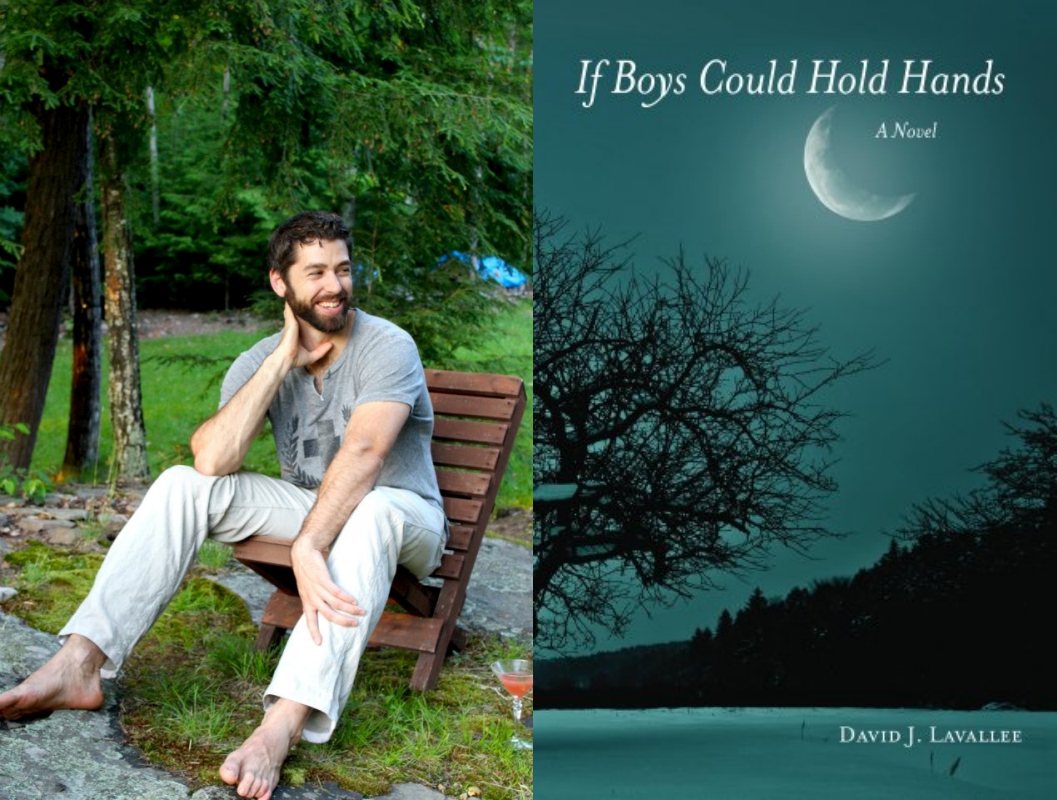
Where can our readers discover more of your work or interact with you?
My first novel, If Boys Could Hold Hands, is available through most major booksellers, Amazon being one of them. I love to interact with other writers and readers either via Goodreads, contact forms via my website, or even over email: [email protected]. I have conducted workshops and book talks at several events and conferences so I will post that schedule on my website as well for 2019, but I am always happy to add more to my schedule if it fits with work and/or travel. I am very appreciative of a note, a message, or feedback.
